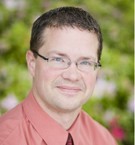“Why did you study with the Rabbis?” This is a question I am often asked after people hear that I did my doctoral work at the Hebrew Union College—Jewish Institute of Religion (in Cincinnati, OH). There are a number of good answers to this question, but I rarely get to explain my reasons in the course of a brief conversation. So I thought I would take this opportunity—in my very first blog post—to summarize why I chose to do doctoral study at a Jewish seminary.
My primary reason was a spiritual one. My wife (Lori) and I prayed that God would make our decision absolutely clear and simple—that he would close every door except the one He wanted for us. I proceeded to apply to what I felt were the top six programs in the country for Hebrew Bible and ancient Near Eastern studies. When the time came for schools to respond, I received my first rejection. It was from an Ivy League school; so I wasn’t too shocked. Then I received another similar rejection, and I was still OK. Then I received a third, then a fourth, and then a fifth rejection… After that, it seemed like an eternity went by (it was actually about a month!). So I (of little faith!) deduced prematurely that God must have something else for me; so I literally started making plans to keep busy for another year. Finally, the sixth letter arrived in the mail, and as I opened it I saw that it contained more than a single paragraph! The first line actually said “Congratulations!” Not only did HUC (Hebrew Union College) accept me, but they offered me a full tuition scholarship and a cash stipend! And then I remembered: Lori and I had prayed for this. We asked God to make this decision crystal clear, and He did. Five doors had been closed, and only one door was opened all the way. This was the primary reason why I choose HUC for doctoral work. But there were, of course, a number of other conducive factors.
First, compared to other programs, HUC had the strongest program at that time for what I wanted to study. I wanted a program where I could do continual studies in Hebrew Bible with an eye toward the whole array of ancient Near Eastern languages, literature and archaeology. While most other programs would make me specialize in one area of ancient Near Eastern studies, HUC allowed me to generalize by taking some Sumerian, Akkadian, Ugaritic, Egyptian, etc., as well as spend a summer on an excavation in Israel (with all expenses paid!). I loved the fact that Hebrew Bible was fully integrated into all the other subjects. This kind of integration was natural for their faculty because they were all Jewish—many of them were rabbis—and the Hebrew language was intrinsic to their way of life.
Another factor why HUC was conducive for me was that they were very liberal and pluralistic. What? Did I just say that? Yes. HUC is the only seminary for the movement known as Reform Judaism. Their liberal political stance and pluralistic values were the reasons why a goy (Gentile) like me was accepted and offered a scholarship. You see, I would never be allowed to study at an orthodox or even a conservative Jewish institution, but a Reform seminary was a different matter. They knew I was a Christian, and it seemed that they even prided themselves in having religiously diverse students like me in their Ph.D. program! Thus the religious differences between me and HUC ironically turned into mutual benefits for us both.
The third and final factor beyond my initial (spiritual) reason is simply this: many Christian scholars had already gone before me into this program and shown me the way. There were many inspiring precedents: people like John Walton (Wheaton College), Rick Hess (Denver Seminary), Bill Arnold (Asbury Seminary), Hassel Bullock (Wheaton College), etc., etc. And this was no small factor for me. Many of you already know that I have an affinity for the scholarship of John Walton. That is largely because he was my first academic mentor. As an undergraduate at Moody Bible Institute (where John Walton formerly taught), I was able to take Walton for every class that he offered. I also first learned biblical Hebrew from him. He was a graduate of HUC… And the rest is history!
So those are the major factors that I frequently want to explain when people ask why I chose a Jewish seminary. For any of you who are considering doctoral work, keep in mind: (1) that God is totally in control; (2) that your spouse (if you’re married) is part of the decision-making process; and (3) that the path of your journey will probably look different than mine—your journey is uniquely designed.
 Biola University
Biola University
.jpg)


.jpg)